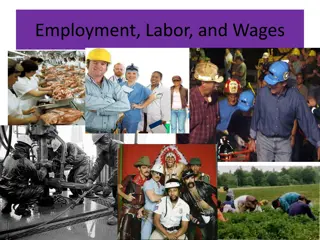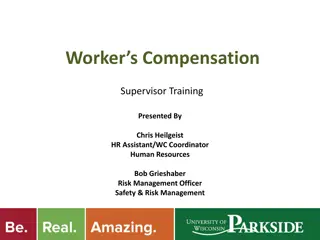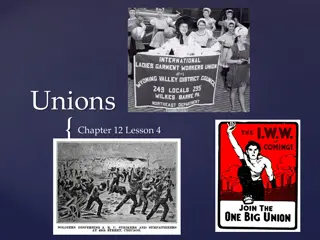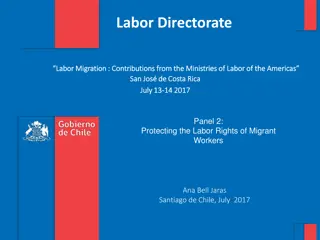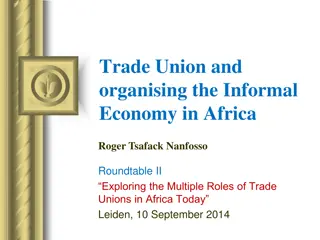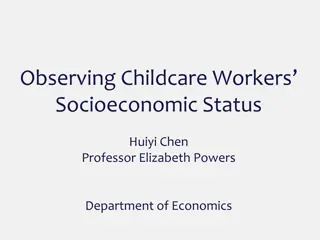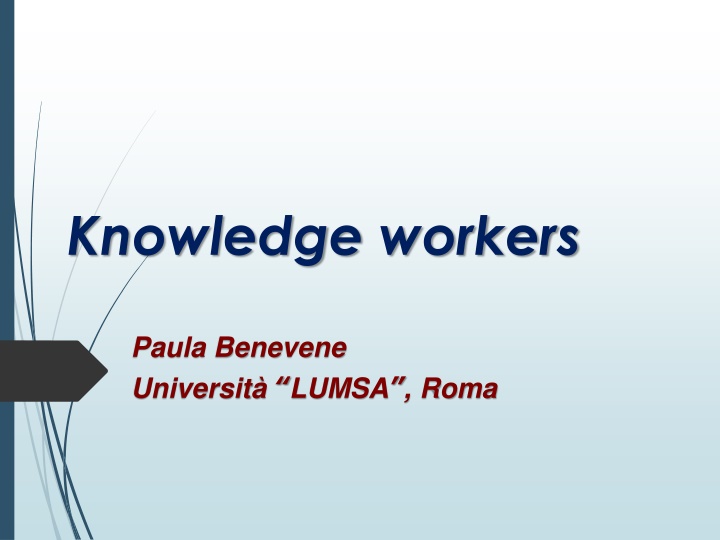
Knowledge Workers: Transition to an Economy of Intangible Goods
Explore the concept of knowledge workers introduced by Peter F. Drucker in 1960, highlighting the shift from industrial to service-based economies and the crucial role of shared knowledge in modern productivity and competitiveness.
Download Presentation

Please find below an Image/Link to download the presentation.
The content on the website is provided AS IS for your information and personal use only. It may not be sold, licensed, or shared on other websites without obtaining consent from the author. If you encounter any issues during the download, it is possible that the publisher has removed the file from their server.
You are allowed to download the files provided on this website for personal or commercial use, subject to the condition that they are used lawfully. All files are the property of their respective owners.
The content on the website is provided AS IS for your information and personal use only. It may not be sold, licensed, or shared on other websites without obtaining consent from the author.
E N D
Presentation Transcript
Knowledge workers Paula Benevene Universit LUMSA , Roma
The term "knowledge workers" was coined by Peter F. Drucker in 1960; Drucker underlines the transition from an industrial economy - based on the Taylor-Fordist model - to an economy of services; The goods exchanged are no longer concrete and tangible, but intangible: that is, based on exchanged and shared knowledge flows, that assume the role of products , just like the most important material resources.
Manual work is analyzed and broken down into its simple elements to be repeated in a mechanical and repetitive way. which does not require highly specialized training Rationalization and improvement of the production become the prerogative of an elite of technicians and engineers. Knowledge creation is complitely separated from manual work. Some people organize the work, and others do it.
Worker: Cost Machines: Investment Objectives: Increase in productivity / Reduce costs / Reduce time / Production for the mass market Capital increase
With the globalization of markets, companies compete in an increasingly large and highly competitive market. This entails greater complexity of action which makes the implementation of truly effective strategies more difficult at the same time. "Knowledge" becomes the only source of a stable and sustainable competitive advantage.
Knowledge must be created and disseminated within the company and transferred into activities capable of creating value for the organization. The human factor is a key element: the interaction between people holding and sharing individual knowledge, can create new knowledge, thus improving organizational innovation, productivity and competitive advantage.
Knowledge workerers: - operate on intangible processes; - employ different types of knowledge to carry out their work: - for them, knowledge is the main input and output of production processes.
They transform their professional knowledge (explicit/ tacit, rational/emotional, expert/operational) into: cognitive inputs (data, information, images, signals) and knowledge output of greater value (problem solving, event orientation, enriched data and information, innovation).
Critical and strategic thinking: knowledge workers are expected to be able to continuously develop new strategies, aimed at improving both the product and the organization in which it operates. Continuous Training: knowledge workers are expected to constantly bring innovative ideas into the organization, thanks to a continuous learning process. This process must be facilitated by the company, in order to create an innovative work environment in line with the rapid changes that the organization is facing.
Working groups aimed at innovation: working groups within the organization competitiveness between companies and should therefore have as their main objective the exchange and sharing of knowledge, aimed at making the products/services and the organization itself increasingly competitive within the market. should be aware of the Working groups are pushed by the serch for innovation and creativity, in order to achieve continuous progress.
Think of risks as an opportunity for success: maintaining the status quo certainly protects the organization from having to make risky decisions but this attitude certainly limits the chances of progress. Knowledge workers must be able to share knowledge with their colleagues and carry out with them a careful risk analysis in order to make shared decisions based on specific knowledge.
Knowledge must translate into decisive and responsible actions: it is always necessary to pay attention to the product / service by analyzing and weighing the possible alternatives, which can be adopted, in order to make the product / service increasingly innovative and therefore competitive.
knowledge: Responsibility knowledge workers are expected to support their superiors and colleagues, when there is a problem, within the organization, thus generating the appropriate knowledge, in order to find the best solution. towards learning and It is also expected that within the organization there is a mutual exchange of knowledge and that each worker is a valid resource to turn to in case of need.
1) To define the productivity of the knowledge worker, it is necessary to constantly define what his tasks are (what is the task?). 2) The knowledge workers must act autonomously taking full responsibility for their work performance.
3) Innovation is the main task and the greatest responsibility of the knowledge worker. 4) Part of their job is also to be involved in a process of continuous training, and in the same way, of continuous transmission and teaching of knowledge and skills.
5) Evaluating the productivity of knowledge workers does not involve quantitative factors but mainly qualitative factors. 6) The knowledge worker must also be considered by the organization he works for not a cost on the payroll but a long- term investment.






